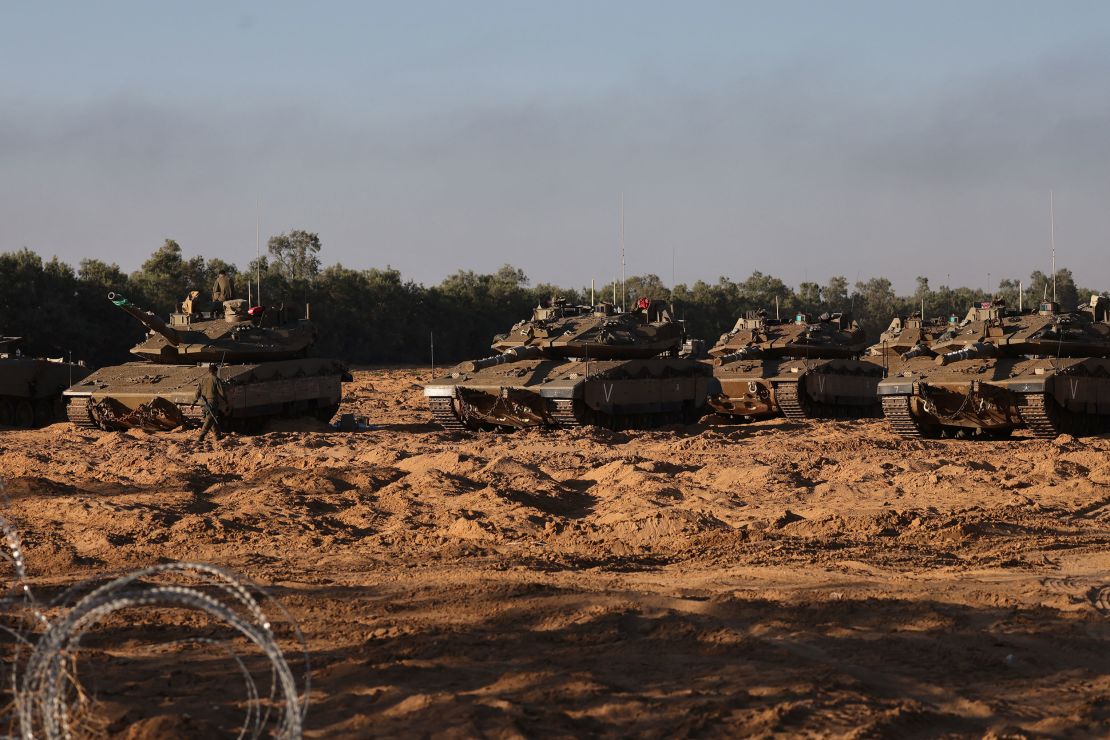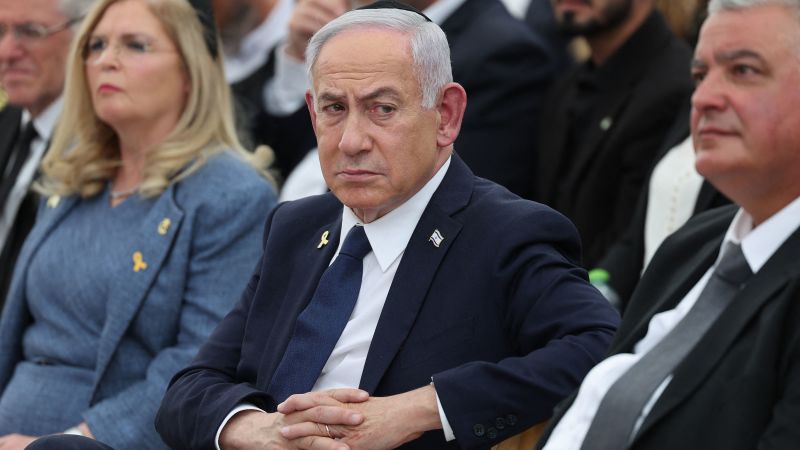CNN
—
Prime Minister Benjamin Netanyahu kept up appearances for nearly 19 months: Freeing the hostages and defeating Hamas, he insisted, stood equally atop the pyramid of Israel’s war goals.
Even as members of his right-wing governing coalition threatened to topple his government if he agreed to a ceasefire and hostage release deal. Even as he himself threw up eleventh-hour obstacles to reaching such a deal. And even as evidence mounted that Israel’s military operations had both directly and indirectly led to the killing of Israeli hostages. Amid all those contradictions, Netanyahu insisted both objectives were just as important.
But not anymore. Now, Netanyahu is unabashedly prioritizing war – and the survival of his government – over the fate of 59 hostages still in Gaza and the will of most Israelis.
A week after calling the defeat of Israel’s enemies the “supreme objective” of the war, Netanyahu is turning that rhetoric into action: calling up tens of thousands of reservists to pummel, seize and occupy large swaths of Gaza – what the prime minister calls the “final moves” against Hamas.
Israeli officials say the plan won’t be implemented immediately, giving Hamas at least another week-and-a-half to agree to another limited hostage and ceasefire deal on Israel’s terms – with some insisting that is the government’s preference. The deadline, they say, is the conclusion of US President Donald Trump’s visit to the region next week. But such a deal is unlikely to materialize in that timeframe and these are no longer idle threats.
The right-wing ministers who have sabotaged previous ceasefire deals and long called for conquering Gaza are now celebrating, viewing the newly approved plans as the first step toward their vision of occupying and ultimately annexing the enclave. Finance Minister Bezalel Smotrich now vows that there will be “no retreat from the territories we have conquered, not even in exchange for the hostages.”
For Netanyahu, that means political security – taking Smotrich and National Security Minister Itamar Ben Gvir’s repeated threats to leave the government and force new elections off the table, keeping him in the prime minister’s office.
It also means going against the will of a clear majority of Israelis – 56% according to Israel’s Kan 11 and 69% according to Channel 12 – who support a deal to end the war in exchange for the release of all remaining hostages.
Hamas has repeatedly said it is open to such an all-in-one deal, hoping to salvage its position of power in Gaza, but the Israeli government has rejected any end to the war that leaves the group armed and governing the strip.
For the families of Israeli hostages, Netanyahu’s decision has been a gut punch, one they fear won’t just delay the return of their loved ones but actively endanger them.
“It seems the government has placed defeating Hamas above rescuing and returning the hostages, because doing so would require stopping the war,” Anat Angrest, the mother of captive Israeli soldier Matan Angrest, told Haaretz. “Ministers are sending soldiers into harm’s way and putting the hostages at further risk, when all that was needed was a pause to develop a real strategic plan. What’s happening now is a war fueled by revenge and conquest, not by a genuine desire to save lives.”
“It doesn’t reflect the will of the people, or the Jewish heart,” she said.

The expanded Israeli assault in Gaza won’t just bring the risk to the hostages of more Israeli bombs. Hamas has repeatedly said it will execute hostages if Israeli forces close in on their positions, a threat it carried out last August in murdering six of them. Israel’s plan to displace nearly all of Gaza’s population to its southern part while continuing to starve the rest of the strip of humanitarian aid could also endanger the hostages’ access to the already limited food they are given.
Notably, in the days before the Israeli security cabinet greenlit the expanded war effort, Netanyahu’s wife and close adviser, Sara, sought to downplay the number of living hostages. When Netanyahu said last week that “up to 24” hostages held in Gaza are still alive, his wife chimed in: “Fewer.” Her comments reflected what Israeli officials told CNN are “grave concerns” about three of those hostages – the same language previously used to refer to hostages who were eventually confirmed dead.
For the people of Gaza, Netanyahu’s decision threatens catastrophe beyond the dire humanitarian crisis already gripping the besieged territory. The expanded Israeli assault guarantees another mass forced displacement of Palestinians, more death and destruction and the continued use of starvation as a weapon of war.
Even as Netanyahu’s decision to prioritize destroying Hamas over the fate of the remaining hostages becomes clear, the Israeli military’s ability to achieve its aims vis-à-vis the group remain uncertain.
The factors that have allowed Hamas to survive and stay in power in Gaza after nearly 19 months of war still remain, and Israeli national security analysts remain skeptical that tens of thousands of additional troops will fundamentally change the dynamics of the conflict. Sending them with the goal of occupying large swaths of Gaza could drive up Israeli military casualties, with the risk of bogging the military down for years in a counterinsurgency morass.
Perhaps that is why Netanyahu did not barrel headfirst down the path he has now chosen.
Trump’s return to power allowed Netanyahu to shed the guardrails imposed on him by President Joe Biden during the first 15 months of the war. But even as Trump and his administration made clear they would not seek to constrain Israel’s military actions in Gaza, Netanyahu did not immediately pursue the expanded war his right-wing allies have been clamoring for.
But in a fulcrum moment, he has now chosen – a decision that will shake the Gaza Strip, forever altering the fate of more than 2 million Palestinians and 59 hostages.

